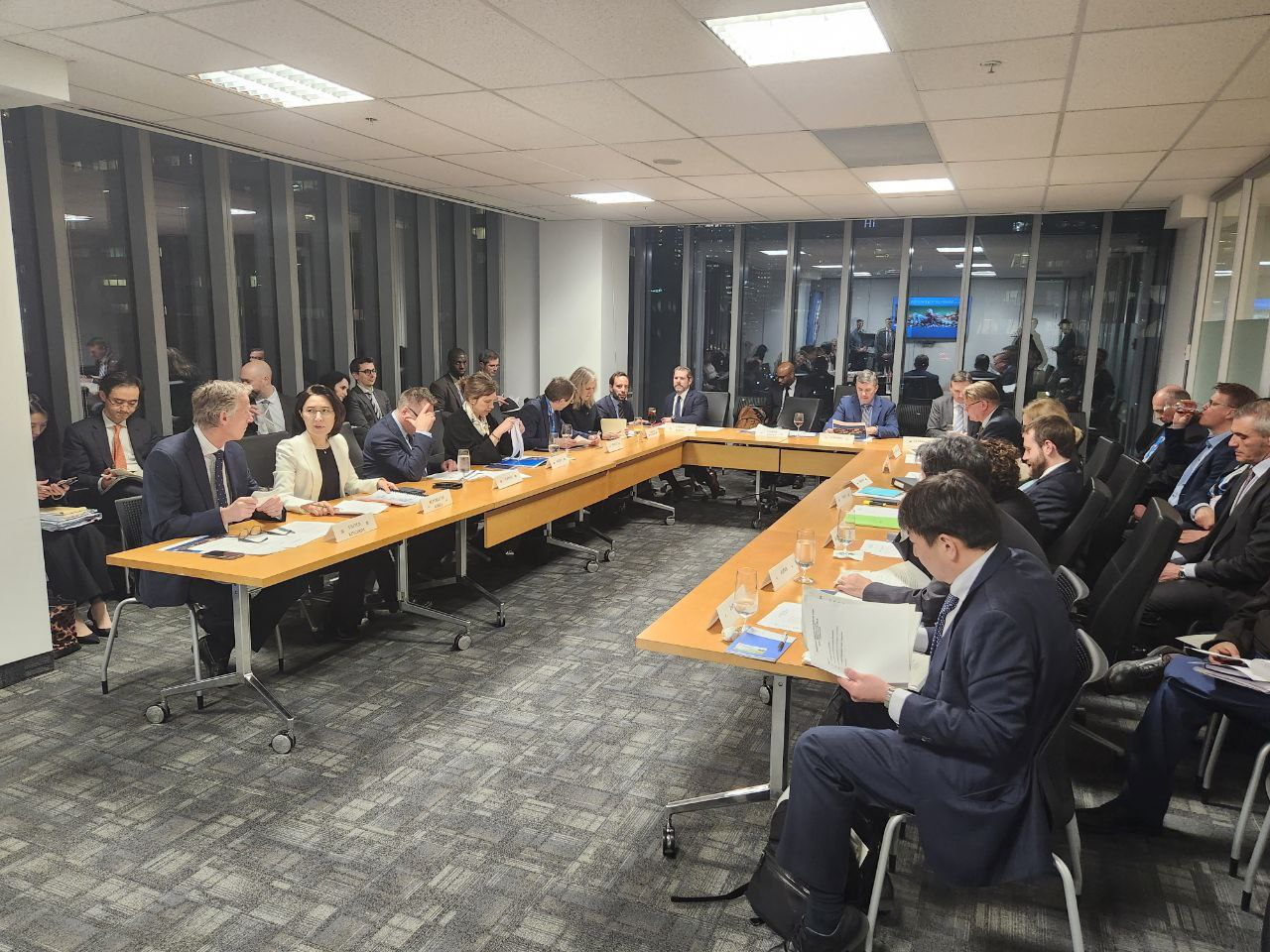 |
Chief delegates to the Minerals Security Partnership, the US-led initiative on ensuring the global mineral supply chain, at their meeting in Toronto on Sunday. (Ministry of Foreign Affairs) |
Members of the US-led Minerals Security Partnership agreed to establish a forum to promote effective cooperation on critical mineral supplies with non-member countries that are significant producers of minerals, South Korea's Foreign Ministry announced Monday.
Second Vice Foreign Minister Kang In-sun participated in the Representatives Meeting of the MSP chaired by US Undersecretary of State for Economic Growth, Energy and the Environment Jose Fernandez in Toronto on Sunday.
During the meeting, discussions centered around strategies to "diversify supply chains for critical minerals such as lithium, graphite, nickel and rare earth elements," according to the Foreign Ministry.
Seoul noted that MSP members agreed on setting up the so-called "MSP Forum" to offer a chance for countries with mineral resources that don't hold membership to engage with the MSP framework.
The Foreign Ministry said that MSP member countries committed to "promote effective cooperation on critical minerals with participating countries in the forum," with anticipation that the forum will contribute to "establishing sustainable supply chains for critical minerals."
The forum is aimed at connecting MSP members who are major consumers of critical minerals with mineral-producing countries for better and closer cooperation, a Foreign Ministry official, who wished to remain anonymous, told The Korea Herald.
The ministry did not share further details, including the list of participating countries in the forum or a specific timeframe.
But the ministry said that resource-rich countries in Latin America also took part in Sunday's meeting, where they discussed and exchanged perspectives on avenues for cooperation in mineral development.
The MSP consists of 13 countries: Australia, Canada, Finland, France, Germany, India, Italy, Japan, Norway, South Korea, Sweden, the United Kingdom and the United States, along with the European Union. Together, they represent over 50 percent of the global gross domestic product.
The MSP represents the Biden administration's flagship initiative that seeks to expedite the development of diverse and sustainable critical energy mineral supply chains and alleviate disruptions in the critical minerals supply chain caused by the growing complexity of the US-China relationship.
China currently holds a dominant position in global critical mineral supply chains, and the demand for critical minerals is expected to increase significantly, primarily due to their use in the renewable energy sector, including in EV batteries.







![[Herald Interview] How Gopizza got big in India](http://res.heraldm.com/phpwas/restmb_idxmake.php?idx=644&simg=/content/image/2024/11/20/20241120050057_0.jpg)